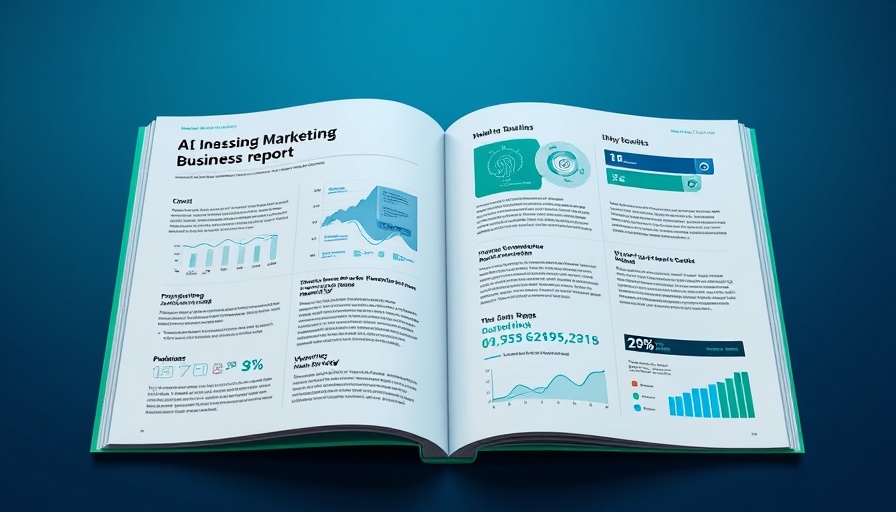
Unpacking the Impact of AI on Marketing Strategies
Artificial Intelligence (AI) is not just a buzzword—it's becoming a heartbeat within the marketing sector. The recent State of AI in Marketing report surveyed 155 marketing leaders, and the insights were both illuminating and concerning. As organizations rapidly integrate AI tools, understanding their impact is crucial for anyone in the industry.
Which AI Tools are Reshaping Marketing?
Among the tools, ChatGPT stands out, positively influencing the efficiency of over 83% of marketers surveyed. Yet, it isn't the only player shaking up the scene. Many are also leveraging tools like Gemini and Canva AI, creating “AI stacks” that pool various strengths together to enhance productivity. This flexibility allows marketers to tailor their AI approach based on their unique needs and objectives.
Content Creation: The New Frontier
Unsurprisingly, content has emerged as the area most drastically improved by AI. A significant 64.5% of respondents acknowledged enhanced experiences with content creation, while both content optimization and idea generation were noted by 43.9%. The consensus remains clear: AI tools are not here to replace creativity, but rather to augment it, helping teams expedite processes and conquer creative roadblocks.
The Time Saving Revolution
Marketers are basking in newfound time savings; 76.8% noted that adopting AI has allowed them to relocate hours typically spent on mundane tasks towards more strategic work. This paradigm shift in how time is allocated can dramatically enhance a team’s overall productivity. Finally freeing up valuable time empowers marketers to focus on high-level strategy rather than getting bogged down by repetitive tasks.
Challenges and Concerns: Output Quality Hurdles
However, with potential rewards also come challenges. Over half of the surveyed marketers, precisely 54.2%, voiced concerns regarding the quality of AI-generated content. Issues with inaccuracies, unreliability, and inconsistency suggest that while AI is changing workflows, it still lacks the precision that human oversight provides. This underscores a critical theme—the need for a strategic approach to AI integration within marketing teams.
ROI: The Unclaimed Promise
Despite notable improvements in efficiency, a substantial gap remains in achieving direct ROI-linked results. Traditional metrics such as customer lifetime value and lead quality have not seen significant improvement, positing an important question: is the investment in AI justified? Marketers now face the challenge of ensuring human oversight and sound strategy to help realize the full potential of these AI capabilities.
Looking Ahead: Where Is AI in Marketing Heading?
As the marketing landscape continues to evolve, understanding the ongoing integration of AI will be paramount. Future investment plans need to prioritize not just the acquisition of new tools, but also the training and strategic oversight to harness them effectively. Marketers must ask themselves: how can we leverage AI’s capabilities to enhance both creativity and efficacy?
The findings from the State of AI in Marketing report serve as a valuable resource for those in the industry. It’s a calling to not only adopt new technologies but to do so thoughtfully. Failure to align AI strategies with clear benchmarks could lead businesses astray in this fast-paced industry.
 Add Row
Add Row  Add
Add 




Write A Comment